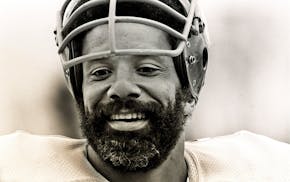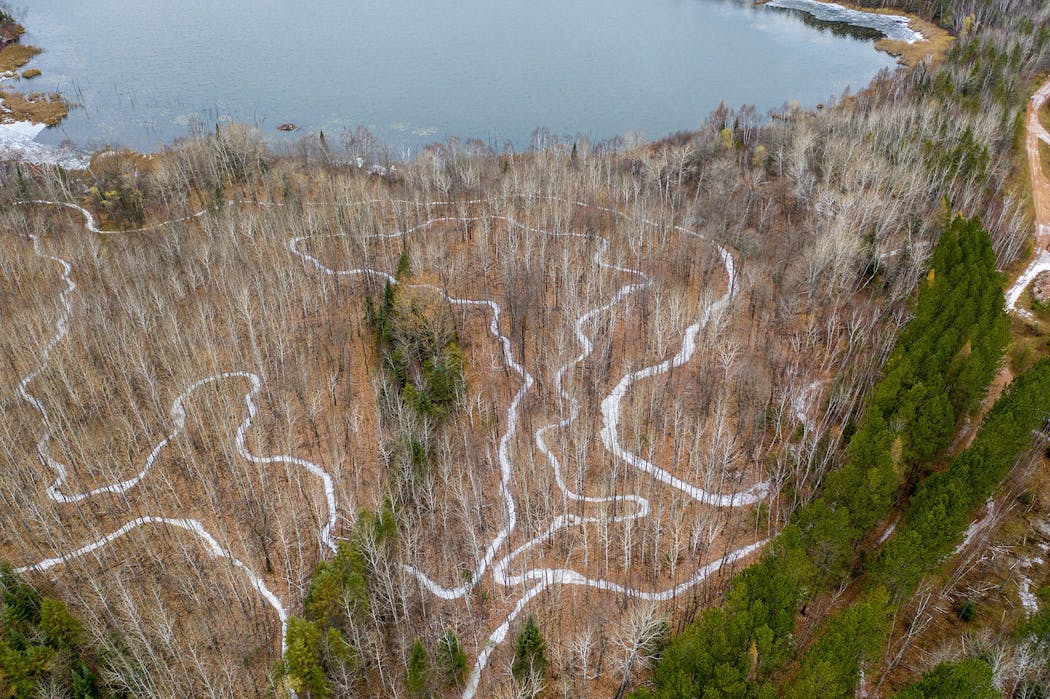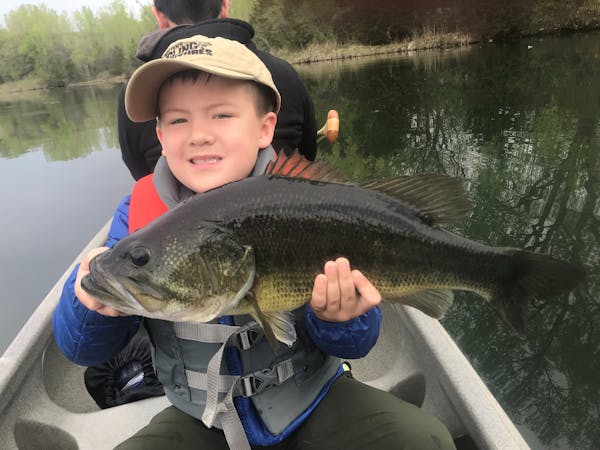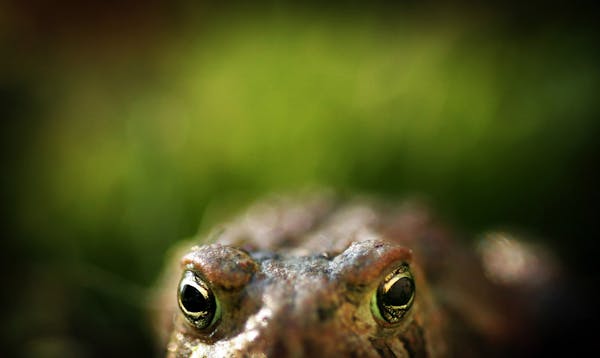Four stars of mountain biking on Minnesota's Iron Range have pulled together to sell their estimable assets in a period when the scene never has been hotter.
The new marketing campaign, Ride the Range, includes a mix of established and growing mountain biking systems and relative newcomers who recognize the moment.
Cuyuna, with 40 miles of singletrack in the state recreation area in Crosby and Ironton, is one of the four facilities. There also are Tioga Recreation Area near Cohasset and Redhead in Chisholm, like Cuyuna, reclaimed land, and mine pit lakes from their days devoted to iron ore. Last, there is Giants Ridge in Biwabik, known for winter sports but, with its chairlift, becoming a go-to spot for downhill "gravity" trails.
The timing to collaborate on the Iron Range connection and its 112 combined miles of singletrack was self-evident, said Aaron Hautala, a longtime president of the Cuyuna Lakes Mountain Bike Crew who worked with the Department of Natural Resources, earnest community members and others to create the popular trail system, which continues to expand. An adapted trail for hand-cyclists is in the works.
Through his marketing firm, Hautala now is building on the "Cuyuna Adventure Town USA" brand he has developed and nurtured.
The Ride the Range partnership showcases the four facilities and, by extension, wants to scatter all levels of riders around Minnesota. Duluth's trails already have a national reputation and there is buzz about the Jackpot flow trail from Tofte to Lutsen. Hautala isn't interested in fighting over "a shrinking piece of pie" and wants to work across boundaries.
"When we can bring everything together, now Minnesota from a mountain biking perspective is of value enough and of depth enough to attract people from anywhere in this country.
"Because when you think of the total mileage, of the total experience, what our summers are like … this is a really good product," he said.
Max Peters is the executive director of Tioga Recreation Area, with 25 miles of trails over 500 acres of rolling woodland and plans for more, including a skills park. The Tioga name owes to the land's iron-rich days when the No. 2 mine operated from 1955-1961. The state's Iron Range Resources & Rehabilitation Board helped restore the hardwood landscape in the 1980s. The pit has been transformed into a 51-acre lake stocked with trout.
"We see people nationally and internationally flying into Duluth and visiting each one of these facilities, with enough quality singletrack mountain bike trail to really give somebody a week-plus experience you can only find in a couple of other spots in the country," he said.
Coming together
Peters also is Cohasset's finance manager, and it isn't lost on him that great riding only is part of the appeal. Tioga and Redhead have worked from the Cuyuna playbook for reclaiming old mine sites and how a brand of recreation done well can rejuvenate a community, especially economically.
In 2014, three years after Cuyuna opened, an economist working with its active mountain bike crew projected yearly spending of $2 million to $3 million. The early impact report was based on lodging and food spending by riders coupled with yearly user counts at the time by the DNR. Cuyuna saw a 43% increase in annual ridership (15,552 to 22,253) in the first three years. The findings also forecast as much as $21 million spent in the community by visitors annually in the next seven to 10 years.
In 2020, an estimated 160,670 riders hit the dirt or paved trail — a whopping 933% increase from 2011. Too, from eateries to bike shops to lodging, 20-plus new businesses have opened in Crosby, Ironton and Riverton to accommodate the traffic.
The trail systems have diverse and unique back stories, with a mix of public and private dollars to produce them. Tioga drew from the city of Cohasset, IRRRB, Legacy-related funding from the Greater Minnesota Regional Parks and Trails Commission, and others. The IRRRB supported the Redhead trail with Mineland Reclamation and Trail grants to the city of Chisholm. The system opened last year and covers more than 1,000 acres of rocky ledges, mine pit lakes, and red dirt. It is managed by the city and Minnesota Discovery Center, an Iron Range museum, that serves as the trailhead.
Stakeholders are a mix, too. For example, Tioga is city-managed and supported by established tourism centers such as Visit Grand Rapids and trail stewards such as the Grand Rapids and Itasca Mountain Bike Association.
"The trail stuff is the connective tissue," Hautala said.
Traction and attraction
Gary Sjoquist consulted on the Ride the Range project. A longtime bicycling advocate whose Minnesota Mountain Biking Series rolls races on the Range, Sjoquist sees a lot to leverage between the quality of the region and the facilities.
"There is a great history up there, and there is great riding. It is all purpose-built mountain bike riding."
David Wiens, executive director of the International Mountain Biking Association, has ridden the Duluth Traverse, Cuyuna, and elsewhere in the state, and kept tabs on the vibrant scene.
"What we have found for tourism is, it takes a lot of trails to attract people," Wiens said. "In the work in the Iron Range, it is addressing that."
Wiens said riders like to go to more than one place and try new places — to take several days or a week. Make it, he said, like Summit County, Colo., a hot spot with multiple options for skiers and snowboarders.
"Being able to ride Cuyuna, Giants Ridge, Tioga, Redhead — that's a big draw," Wiens said.

Twins lose second in a row to Blue Jays as bullpen falters late

The PWHL's growth comes with a price for a Minnesota Frost team building a potential dynasty
What is the 'House settlement,' and what does it mean for the Gophers and NCAA?

Souhan: Anxiety and depression in the NFL helped inspire Lindsey Young's children's book




